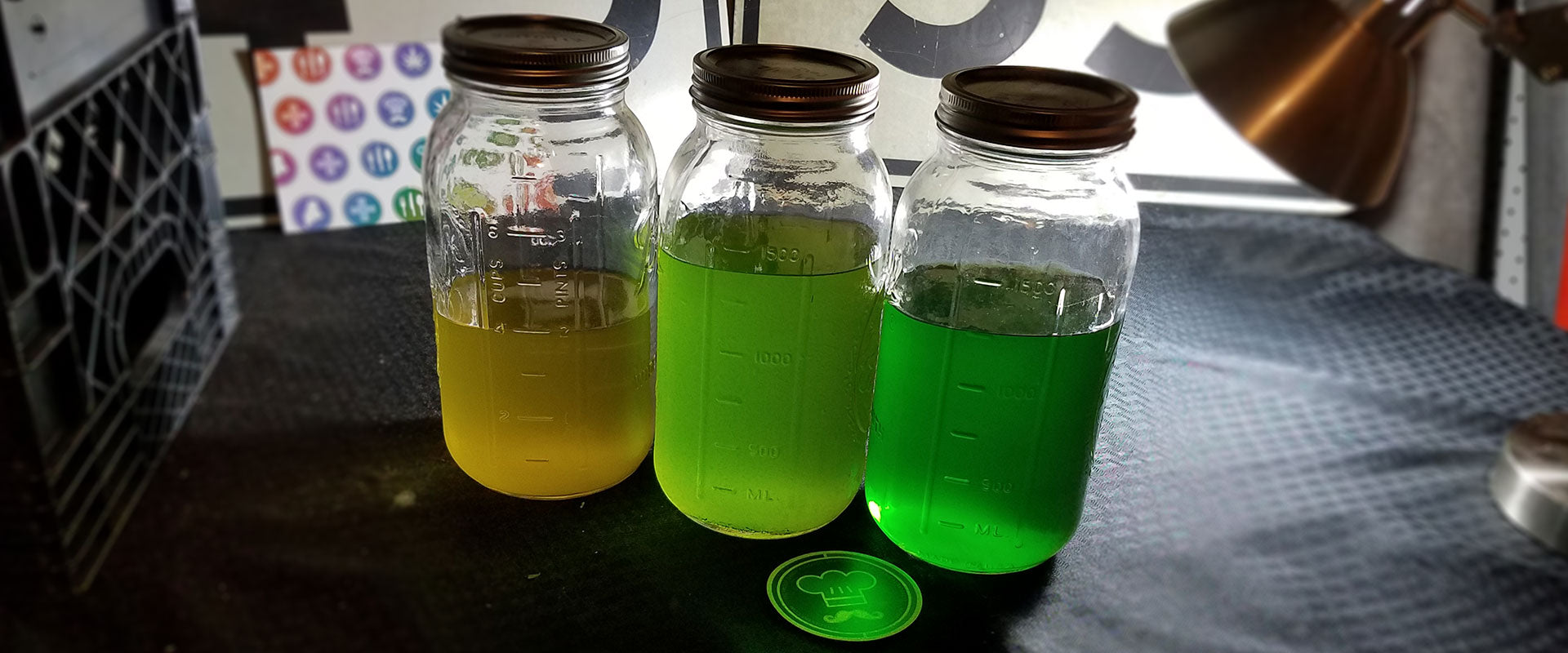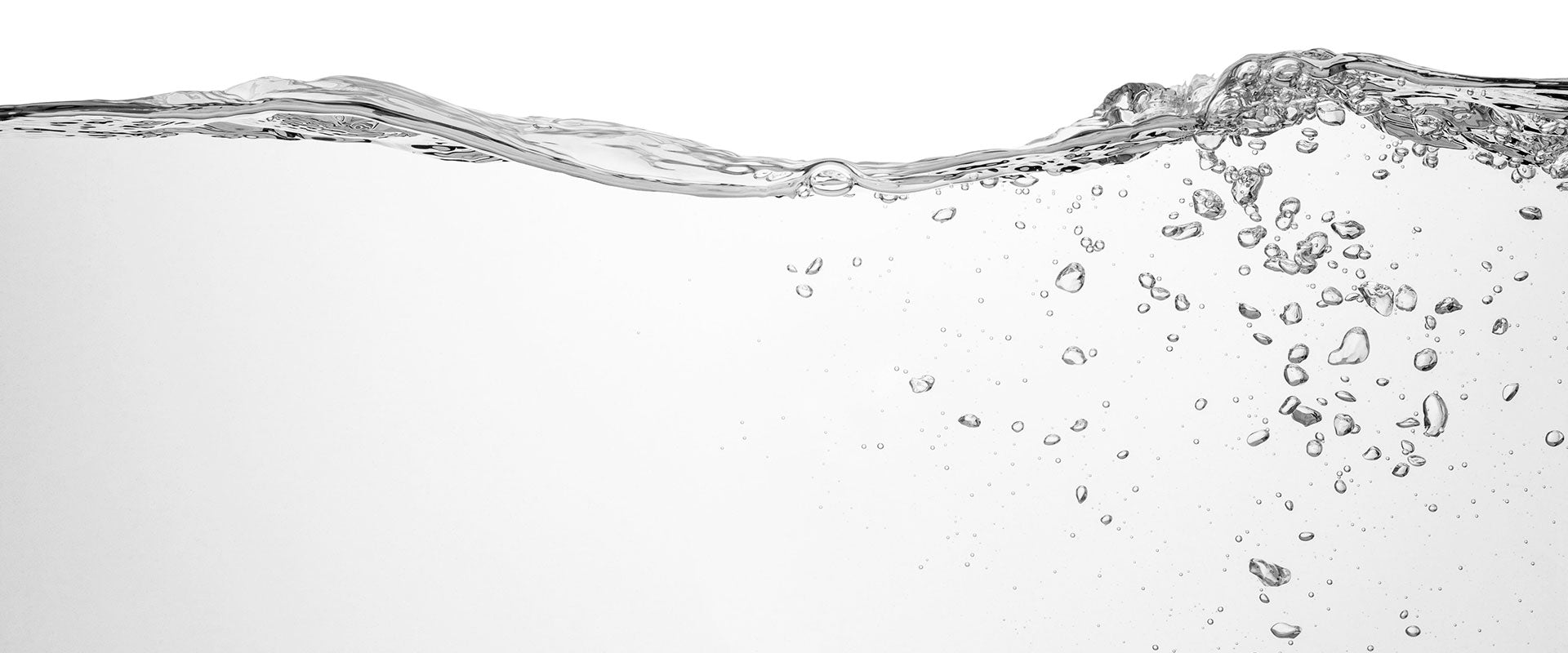Understanding Food Grade Ethanol
What is Food Grade Ethanol?
Food grade ethanol is pure ethyl alcohol that is safe for human consumption when produced without additives or toxic contaminants. It is the only type of alcohol that can be used in food, herbal remedies, personal care products, and more. Its versatility, safety, and purity make it ideal for tinctures, extracts, perfumes, and other projects where clean, non-toxic results are essential.
What Makes Ethanol "Food Grade"?
To be labeled "food grade," ethanol must meet strict standards for purity and safety. This means it:
- Contains only ethyl alcohol (ethanol), with no additives.
- Is non-denatured (also called undenatured).
- Is produced in facilities following food-safe protocols and hygiene practices.
The "food grade" designation ensures that the ethanol can be used safely in applications where it may be consumed or applied to the skin.

Food Grade Ethanol vs Other Alcohols
Not all alcohols are created equal. Here’s how food grade ethanol compares to other types of alcohol commonly found in stores:
- Beverage Alcohol - Also containing ethyl alcohol (the only alcohol safe to consume), beverage alcohols often contain added flavors and higher concentrations of water than food grade ethanol. Keep reading for a more detailed comparison of Food Grade Ethanol vs Beverage Alcohol.
- Isopropyl Alcohol - Used for disinfection and cleaning. Not safe to consume or use in edible products.
- Methanol - Extremely toxic. Found in some industrial applications. Never safe for consumption.
- Mineral Spirits & Solvents - Petroleum-derived. Commonly used for degreasing and paint thinning. Not food-safe.
- Denatured Alcohol - Ethanol that has been mixed with toxic additives to make it undrinkable. Safe only for external industrial uses. Keep reading for a more detailed comparison of Food Grade Ethanol vs Denatured Alcohol.
Food Grade Ethanol vs Beverage Alcohol
Though both are made from ethyl alcohol, there are key differences:
Proof (Strength):
-
Food grade ethanol is available as low as 190 proof (95% ABV) and as high as 200 proof (100% ABV).
-
Beverage alcohol is available as low as 30 proof (15% ABV) but tops out at 190 proof (95% ABV) in most states. Some state rules limit the maximum proof of beverage alcohol at 151 proof (75.5% ABV). Learn more about alcohol proof and ABV here: Understanding Proof and ABV.
Additives:
- Food grade ethanol contains no additives, only ethanol. Water added to dilute to different proofs does not count as an additive.
- Beverage alcohol (except vodka) contains flavoring compounds called congeners.
Availability:
-
Both: While alcohol is regulated on the Federal level by a division of the IRS called the Tax and Trade Bureau (TTB), each individual state also regulates food grade ethanol and beverage alcohol internally and according to their own terms and regulations.
- Food Grade Ethanol: Most states in the US specifically allow "food grade ethanol" importation and sale for uses that are non-beverage related, however some states require a permit, while a few actually prohibit it. Food grade ethanol can be ordered online and shipped via common carrier to these approved locations. Read more about individual state rules and regulations for food grade ethanol availability here.
-
Beverage Alcohol: Every state in the US allows the sale of beverage alcohol through approved brick-and-mortar retailers and license holders (we call these liquor stores). Some, but not all, states have rules allowing or prohibiting the online ordering and shipping of beverage alcohol products.
Container Size and Materials:
-
Food grade ethanol comes in many container sizes, from small 4 fluid ounce bottles, pints, quarts, gallons, bulk jugs, 55-gallon drums, and 270 gallon IBC tote tanks. Food grade ethanol can come packaged in glass, plastic (HDPE), or metal (carbon steel) containers which have special food grade linings inside.
-
Beverage alcohol is sold in different sizes bottles including 50ml, 100ml, 200ml, 750ml (most popular), and 1000ml with a maximum size limited to 1.75 liters. Beverage alcohol is packaged in glass bottles, or plastic (PET) depending on the brand. Some specialty brands of beverage alcohol have offered metal containers as well.
Uses:
-
Food grade ethanol is intended for crafting projects, tincturing, extractions, sanitation, perfume and body products, as a safer alternative to denatured alcohol blends, camp and boat stove fuel, and a host of other uses.
-
Beverage alcohol is intended for drinking purposes, whether straight or mixed into a cocktail.
Food Grade Ethanol vs Denatured Alcohol
Food grade ethanol contains zero additives, only pure ethyl alcohol (and sometimes water) and thereby is safe for human consumption or topical applications to the body and skin. Alcohol that contains no additives, like food grade ethanol, is also clearly labeled as "non-denatured" or "undenatured".
Denatured Alcohol is the term for ethyl alcohol that has chemicals added to make it unsafe to consume. These added chemicals, known as denaturants, can include things like isopropyl alcohol, methanol, bitrex (denatonium benzoate), tert-butyl alcohol (as used in SDA 40-B), or other petroleum-based substances. The purpose of these additives is to make the alcohol taste bad, smell bad, or cause sickness, so people won’t drink it. Denaturant ingredients added to make a denatured alcohol blend are always listed on a label. Learn more about denatured alcohol suppliers and denatured alcohol alternatives on our Understanding denatured alcohol page.
What Do USP and FCC Mean for Food Grade Ethanol?
When researching food grade ethanol, you may come across terms like USP and FCC. These designations help identify the quality and intended use of the ethanol, especially for food, pharmaceutical, and personal care applications.
-
USP stands for United States Pharmacopeia. This designation means that the ethanol meets or exceeds the strict standards for purity and quality set by the USP for pharmaceutical use. USP-grade ethanol is often required for products that are ingested or applied to the body, such as tinctures, over-the-counter medicines, and sanitizers.
-
FCC stands for Food Chemicals Codex. This is a set of internationally recognized standards for the purity and identity of food ingredients. Ethanol that meets FCC standards is safe for use in food, flavor extracts, and beverages. It confirms the ethanol is suitable for human consumption and free from harmful contaminants.
Both USP and FCC designations help confirm that a product labeled as “food grade ethanol” is truly high-quality and safe for use in edible and topical applications.
Food Grade Ethanol Begins with Food Ingredients
Food grade ethanol, revered for its purity and versatility, is meticulously crafted from real food ingredients. The source of these ingredients significantly influences both the quality and the characteristics of the final product. Commonly derived from corn, grapes, cane, or wheat, food grade ethanol's origins are as diverse as they are natural. Each source imparts a unique profile to the ethanol, making the transparency of these ingredients crucial for consumers, especially those with specific dietary preferences or restrictions.
|
Raw Material |
Taste and Smell |
Available in organic |
|
Cane (sugar cane) |
Strong, close to burnt notes of molasses, brown sugar, and hard caramel. Strongly detectable behind herbal and botanical tincture recipes. |
Yes. |
|
Grape |
Most easily recognizable; abundant in fragrant flora aromas that are obtained from the rich grape skins and pulp through the process of juicing; earthy, not sweet; scent is prominent even when layered. Very detectable behind herbal and botanical recipes. |
Yes |
|
Wheat |
Crisp, slightly spicier than others, bready exhale (as you might expect...). Slightly detectable behind herbal and botanical recipes. |
Yes |
|
Corn |
Naturally the most neutral aroma, taste, and character profile; little to no odor; slight burn indicating presence of alcohol but dissipates quickly. Indetectable behind most herbal and botanical recipes. |
Yes |
Practical Uses for 200 Proof Food Grade Ethanol
Herbal Tinctures for Foragers and Apothecaries

Preserve, concentrate, and increase by tincturing your wild sourced botanicals, herbs, roots, stems, seeds, bark, or sap. Some extractions require water... by starting with pure 200 proof ethanol, diluting your alcohol solution to different lower concentrations (ABV) is as easy as "just adding water".
Resources for Herbalists
- Guide to Alcohol for Herbalists and Apothecaries
- Directory of Herbal Tincture and Extract Recipes
- Alcohol for Herbalists blog by Culinary Solvent
Cannabis Tinctures and Extracts

Food grade ethanol makes cannabis tinctures quickly and efficiently. Leave the alcohol in to create a cannabis tincture, evaporate the alcohol away partially to create RSO, or completely evaporate the alcohol to yield a potent cannabis concentrate.
Resources for Cannabis Growers and Caregivers
- Guide to Alcohol Cannabis Tinctures
- Quick wash Cannabis Tincture Recipe
- RSO Recipe
- How to evaporate away alcohol without heat or vacuum.
Cooking, Baking, Confections

Food grade alcohol makes custom flavor extractions, all natural food coloring, and edible paints and decorations. Unlock advanced baking techniques made possible with 200 proof food grade ethanol.
Resources for Chefs and Bakers:
-
Chef's Guide to Alcohol for Cooking
- All about Citrus Extracts
- Homemade Vanilla Extract Recipe
- Make your own natural food coloring with food grade ethanol
- Alcohol for Chef's Blog by Culinary Solvent
Perfume, Cologne, and Body Products

Pure ethyl alcohol is the best alcohol for perfume making, hands down. Safe for skin and body, natural sustainable organic recipe, simply the best.
Resources for Perfumers:
- Read More: Perfumer's Guide to Perfumers Alcohol
Artisans, Crafters, and DIY Enthusiasts

Artisans and specialists from luthiers seeking the cleanest French polish possible, to additive manufacturers seeking consistent results when handling precision components. The high purity of 200 proof alcohol offers efficiency and adherence to stringent quality standards across these diverse applications over 190 proof grain alcohol alternatives.
Resources for Makers of Things
- Guide to Alcohol for Makers
- Understanding Denatured Alcohol and Safer Alternatives
- About French Polish and Shellac using Food Grade Ethanol
- Alcohol for Jewelry Soldering
- Alcohol Inks and Print Making







